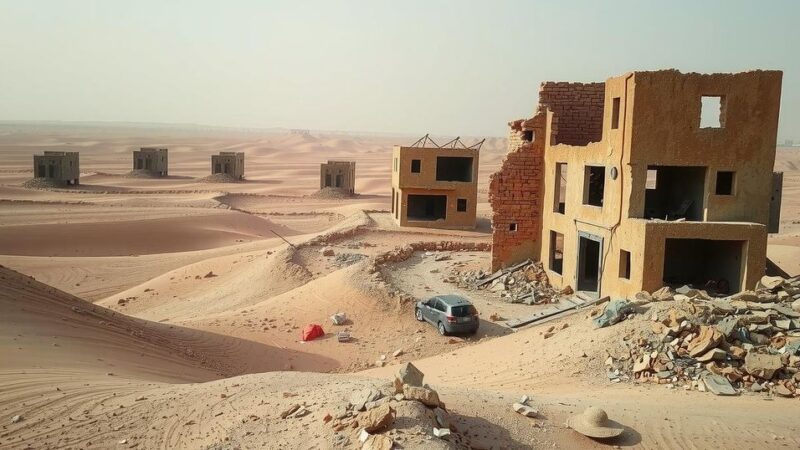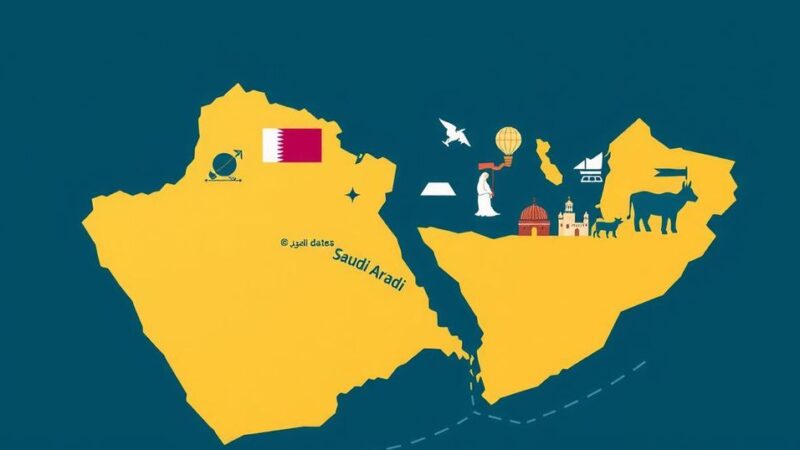Kyrgyzstan and Tajikistan have finalized a significant border agreement, addressing historical disputes and opening border crossings for the first time in nearly four years. The accord, which aims to enhance cooperation over shared resources, results from long negotiations and notable concessions, including the transfer of the village Dostuk to Tajikistan. The joint commitment to peace and diplomatic solutions marks a historic shift towards regional stability, with upcoming summits hinting at further collaboration.
In a significant development amidst global geopolitical tensions, Kyrgyzstan and Tajikistan have reached a “historic” agreement regarding their approximately 1,000-kilometer border. This resolution, hailed by both nations’ leaders, marks a turning point, especially as disputes extending back to early Soviet times had intensified with violent confrontations in recent years. Just two years prior, tensions flared dramatically, resulting in numerous casualties and extensive displacement of communities along the border.
On March 12, following a cordial reception featuring traditional celebrations in Bishkek, Kyrgyz President Sadyr Japarov and Tajik President Emomali Rahmon signed the border agreement. The reopening of two border crossings for the first time in nearly four years accompanied the deal. While ratification in both parliaments is anticipated to be a mere formal procedure, the forthcoming changes in the daily lives of residents along this contentious boundary remain to be seen.
Historically, pre-2021 border skirmishes between Kyrgyz and Tajik communities had been largely minor. However, they escalated to serious warfare in 2021 and 2022, with the introduction of heavy artillery and foreign drones significantly increasing the stakes. Human Rights Watch reported serious violations of wartime laws during these conflicts, emphasizing the urgency of establishing a peaceful resolution to prevent further violence and loss of life.
The border negotiation process was reportedly arduous, with complex territorial issues arising, such as the allocation of pasture land near the Vorukh enclave—an area geographically surrounded by Kyrgyz territory. Kyrgyz national-security chief Kamchybek Tashiev revealed that reaching consensus on critical points, including the status of a strategically important bridge, took substantial time and effort.
One notable concession made by Kyrgyzstan involved the transfer of the village of Dostuk, meaning ‘friendship,’ to Tajikistan. This decision has prompted concerns among lawmakers regarding Tajikistan’s intentions to connect this territory with the broader nation. Amidst these discussions, local residents have faced challenges due to the repeated destruction of their homes during conflicts. Recent tensions arose over additional land allocations for the displaced community, though assurances of compensation have since been made.
In the run-up to the agreement’s ratification, maintaining regional stability will be essential for the Kyrgyz government, which has previously faced opposition stemming from border negotiations. Tajikistan, under a more authoritarian regime, presents fewer avenues for public dissent over such agreements. However, a growing trend toward cooperation among Central Asian nations is increasingly evident, suggesting both countries may seek to solidify this newfound partnership without external influence.
The agreement additionally includes arrangements for joint management of vital water resources, critical for both nations facing resource scarcity. With a significant summit scheduled with regional partner Uzbekistan, this agreement signifies not only the resolution of longstanding disputes but also a hopeful shift towards collaborative efforts in Central Asia. Kyrgyz Deputy Prime Minister Edil Baisalov aptly characterized the agreement as a “historic triumph of diplomatic and political will,” a sentiment that underscores the potential for enduring peace in the region.
The border agreement between Kyrgyzstan and Tajikistan represents a notable achievement in peacebuilding within Central Asia. By resolving long-standing territorial disputes and fostering cooperation over shared resources, both nations have set a positive precedent that could pave the way for further regional collaboration. The commitment of their leaders to diplomacy, amidst historical tensions and recent violence, marks a significant shift toward stability in this geopolitically sensitive area. Continued vigilance and support from both governments will be essential as communities adapt to the changes emerging from this agreement.
Original Source: www.rferl.org






